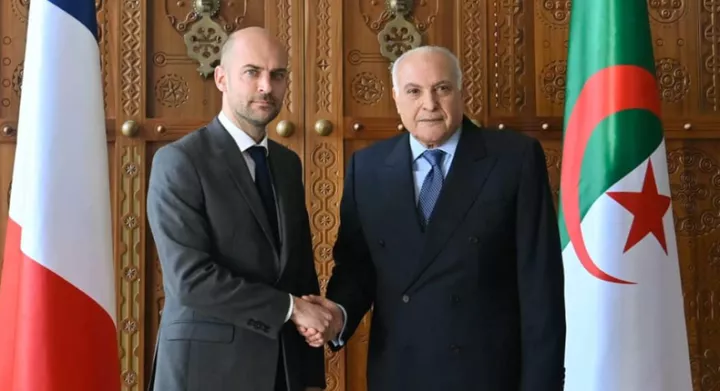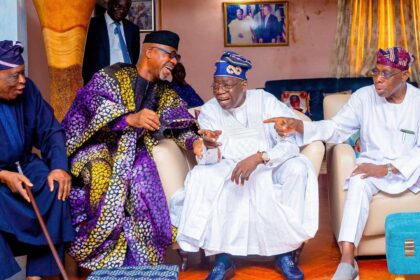[ad_1]

France and Algeria have agreed to renew cooperation across all sectors, marking a significant step toward normalizing bilateral ties after a prolonged period of diplomatic tension.
The announcement came after a day of high-level talks between French officials and the Algerian president, aimed at reviving dialogue and restoring trust between the two nations
The renewed engagement forms part of a broader effort by Paris to reset its relationship with its former colony, as both nations navigate shifting geopolitical dynamics in Africa.
French Foreign Minister Jean-Noël Barrot expressed optimism about a “new phase” in relations following a two-and-a-half-hour meeting with Algerian President Abdelmadjid Tebboune.
According to Barrot, both sides shared a determination to rebuild a partnership rooted in mutual respect and equality.
“We go back to normal, and to repeat the words of President Tebboune: ‘the curtain is lifted’,” Barrot said in a statement after the talks.
Barrot also emphasized the need to establish a strategic dialogue on the Sahel, a region currently grappling with a surge in jihadist violence and political instability following a wave of military coups that have challenged French influence.
France and Algeria also agreed to resume cooperation on migration and visa issues “within the framework of existing agreements,” he added.
In addition to security and migration, both sides reaffirmed their commitment to collaborate in key areas such as energy, education, and economic development-signaling a shared intent to move beyond past grievances and chart a forward-looking path in bilateral relations.
Algeria-France tensions
Previous tensions between France and Algeria have been fueled by disputes over migration policies, visa restrictions, and unresolved issues stemming from France’s colonial legacy in Algeria.
While the two countries have never fully severed diplomatic ties, their relationship has endured recurring periods of strain, including the recall of ambassadors and suspension of various forms of bilateral cooperation.
These diplomatic rifts are rooted in a deeply complex and emotional history shaped by colonization, war, migration, and questions of national identity.
One of the most significant recent low points occurred in 2021 when Algeria withdrew its ambassador to Paris and banned French military aircraft from its airspace in protest of France’s policies.
Last month, Algeria escalated tensions further by prohibiting all forms of French assistance to private schools in the country.
For years, French development aid supported these institutions as part of a broader initiative to promote the French language and culture abroad.
France has long been a major contributor to Algeria’s education sector, donating millions of euros through scholarships, scientific research, and cooperation programs managed via the French Embassy and the French Institute in Algeria.
In 2022, for instance, France allocated €132 million in official development assistance to Algeria. In February 2025, it earmarked an additional €121 million specifically for scholarships for Algerian students pursuing studies in France.
Tensions intensified after French President Emmanuel Macron endorsed Morocco’s autonomy plan for Western Sahara, calling it the “only basis” for resolving the conflict.
The disputed territory, located between Morocco, Mauritania, and Algeria, has been a long-standing point of contention. France’s backing of Morocco’s claim angered Algeria, which has consistently supported the Sahrawi people’s right to self-determination.
Relations were further strained in November 2024 following the arrest of French-Algerian writer Boualem Sansal by Algerian authorities.
He was sentenced to five years in prison over comments made to a French media outlet-an incident that added another layer of friction to an already fragile relationship.
[ad_2]
Source link







